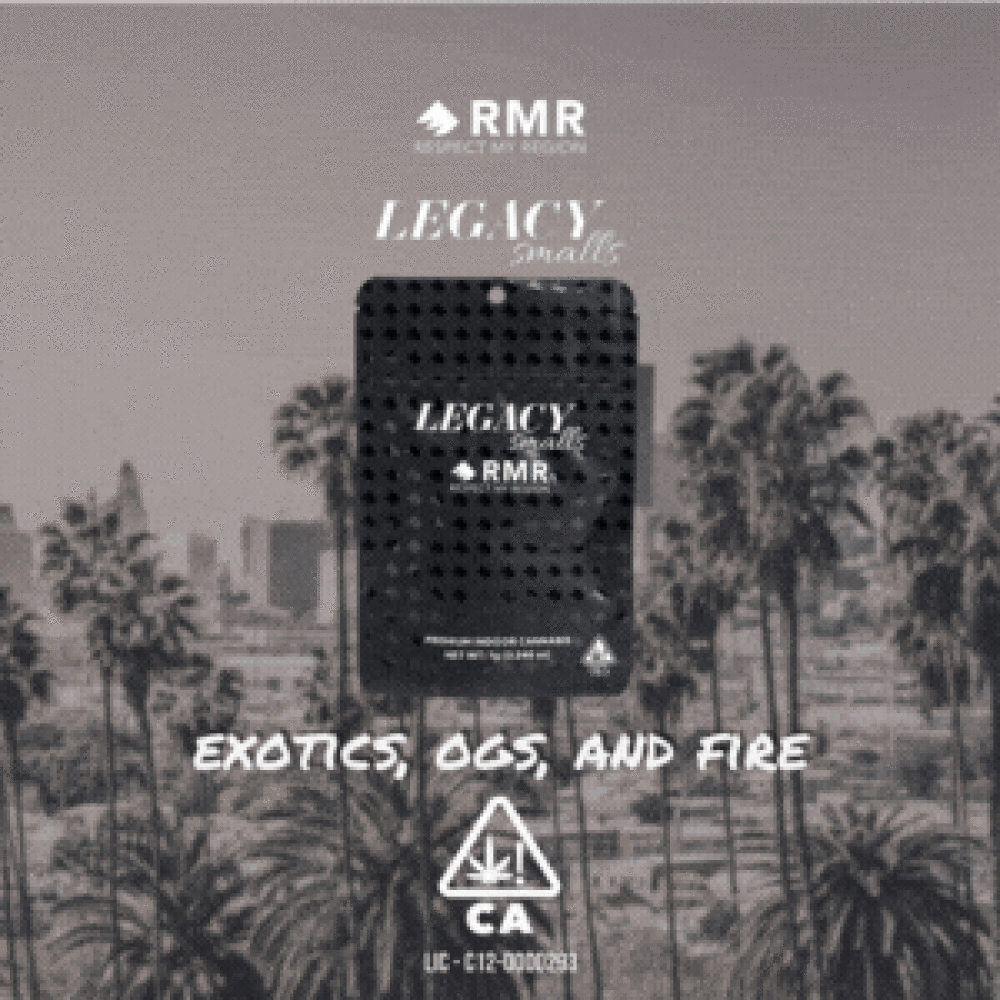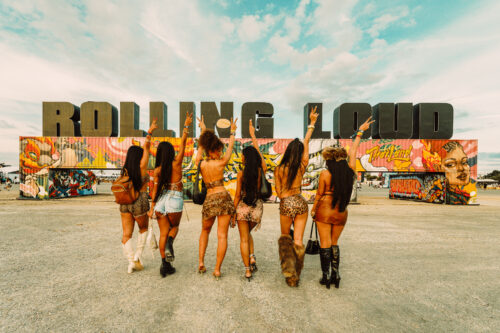Madison Square Garden, the crown jewel of American Sports and entertainment venues, home of the New York Rangers and New York Knicks, The Garden has seen a plethora of iconic moments, from Wrestlemania, to professional boxing, to countless sold out concerts and definitive moments in the lives of New Yorkers and performers, Madison Square Garden has been the setting for many moments in time, however, in a cruel twist of fate, two of the institution’s longest tenured residents have had little success, that being the beloved, lovable losers, the New York Knicks and New York Rangers.
Photo via Marty Lederhandler
This trend would be bucked 30 years ago when in 1994 both juggernauts of New York, made the final rounds of their respective league playoffs, with the Rangers finally breaking their 54 year championship drought, The Knicks didn’t get so lucky, but it’s not always about the winning or losing of a team, sometimes the journey really is the destination, the Rangers and Knicks have had different fates throughout their histories, but for the spring of 1994 those fates, intertwined.
The Knicks Before ‘90
Beginning with the Knicks, they were about twenty years removed from their glory days of the 1970s. The Knickerbockers have won 2 championships in their franchise history, first in the 1969-70 NBA season and later in the 1972-73 season.
Photo of 1970 Game 7 shoot around via George Kalinsky
These are regarded as some of the greatest teams to ever play in the NBA, the ‘70 team had 18 game winning streak in the regular season and defeated the Lakers in 7 games, with Willis Reed becoming the first player to win Finals MVP, All Star Game MVP, and League MVP all in the same season. The Knicks faced the Lakers again in the ‘72 finals and were defeated in 5 games. The Knicks capped off the LA vs NY trilogy in ‘73 when they vanquished the Lakers in 5 games, with Reed once again capturing Finals MVP.
This 70’s Knicks core had a very New York feel to them, the eternally stylish Walt “Clyde” Frazier was one of the faces of the team, Earl “The Pearl” Monroe dazzled fans with magical passes and sliced defenses with surgical like precision, Willis Reed was one of the elder statesmen of this core and showed an unparalleled level of grit and determination when he came back from a torn muscle in his leg in the ‘70 finals.
Veteran big man Jerry Lucas was a consistent performer who made a name for himself as of one of the game’s best power forwards ever, Dave DeBusschere was a future hall of famer and a 5 time All Star during this era, future Democratic senator Bill Bradley was renowned for his defensive prowess, and of course there was the ever eccentric Phil Jackson on the team as well.
These names became ingrained in the culture and mythology of New York sports, all of these players are Naismith Basketball Hall of Famers (Jackson being inducted as a coach) and this was undoubtedly the peak of New York basketball, a peak not seen until the 90’s.
The 1980’s were a dark time for the New York Knicks, from the 1980-81 season, to the 1988-89 season there were only 4 different players to be named All Stars for the Knicks, those players being point guard Michael “Sugar” Ray Richardson, small forward Bernard King, center Patrick Ewing, and point guard Mark Jackson. They only made the playoffs 4 times, and never made it past the second round of the postseason.
Photo of Patrick Ewing getting drafted via Noren Trotman/Getty Images
Off court issues derailed the promising career of “Sugar” Ray Richardson, injuries held back King, and Ewing and Jackson were just too young to make much of a real difference.
Then the 90’s came.
Creating An Identity
The Knicks stopped holding onto yesterday, accepting they were no longer a team of flashy superstars, they didn’t represent Broadway anymore, in the 90’s they represented Hell’s Kitchen.
The Knicks front court Left to right; Ewing, Oakley, Mason, and Anthony
Led by former Georgretown center and 1985 first overall pick, Patrick Ewing, the Knicks were back on the up in the 90’s, establishing a reputation as a tough, physical team reminiscent of the Detroit Pistons, accompanying Ewing were forwards Charles Oakley (who was acquired in 1988 via trade a trade with The Chicago Bulls for center Bill Cartwright), Anthony Mason who joined the team in 1991 (after being a journeyman in the NBA, USBL, and foreign leagues), and Charles Smith a traditional power forward with the Los Angeles Clippers masquerading as a small forward with New York.
The Knicks backcourt were also scrappy overachievers, much like Mason, starting shooting guard John Starks made his bones in minor leagues, playing in the CBA and WBL after being undrafted in 1988 and failing with the Golden State Warriors, his 1994 backcourt running mate was second year man, Greg Anthony a Las Vegas native renowned for his defensive prowess who started in 56 games after opening day starting point guard Doc Rivers tore his ACL around Christmas.
Surrounding the core players were your typical hodge podge of young role players like guard Hubert Davis and Anthony Bonner, alongside older career journeymen and former star nearing the twilight of their careers players like Derek Harper, Rolando Blackman, Herb Williams, and Tony Cambpell.
Corralling these players was 4 time NBA championship winning head coach Pat Riley whose Los Angeles Lakers dominated the 1980’s. Riley played into the toughness of the team general manager and New York native Ernie Grunfeld assembled, establishing one of the most feared defenses in the NBA.
The 1994 Knicks were fourth in the NBA in rebounds per game averaging 45.3, averaged the fifth most opponent turnovers per game with 17.3, held their opponents to the third least rebounds per game only conceding 39.8, and perhaps most important for any defensive juggernaut the least amount of points per game allowing a mere 91.5 when the league average was 103.4. This defense was anchored primarily by All Stars Ewing who led the league in defensive rating with a score of 92.9, and Oakley who was fifth with a score 95.8.
Sadly the Knicks offense was a lot less potent which foreshadowed their collapse in the 1994 finals. The Knicks ranked twenty first in points per game with 98.5, and eighteenth in field goal percentage (46%). One somewhat highlight of their team was having the eighth ranked three point shooting team in the league, making 34.8%. This was still good enough to give them the two seed in the Eastern Conference.
The Knicks first round opponent was the New Jersey Nets still reeling after the tragic death of star shooting guard Drazen Petrovic in the 1993 offseason, were led by All Star power forward Derrick Coleman and All Star point guard Kenny Anderson both of whom were starters in the 1994 All Star Game.
The Knicks absolutely destroyed them, dispersing the plucky upstart Nets in 4 games of the best of 5.
Ewing averaged 24.8 points per game, 11.8 rebounds, and 3.3 blocks, Oakley averaged 16.3 points, 14.3 rebounds, and 2.3 assists per game, the last of the ‘94 Knicks All Stars was shooting guard John Starks who averaged a poor 10.3 points per game, 2 rebounds, and 2.8 assists while shooting a dismill 27.3% from three point territory. However, Charles Smith now acclimated in his role of starting small forward picked him up, averaging 12.5 points per game while scoring a series best 59.4% from the field.
The played Knicks defense, holding both Anderson and Coleman to below 40% from the field, and holding the eighth highest scoring offense to a measly 86.25 points per game, 17 points below their regular season average of 103.2.
The next team the Knicks faced was the reigning NBA champion Chicago Bulls coming off their third straight NBA Championship. However, those rings came with a man by the name of Michael Jordan on the roster, and he was off gallivanting in the Chicago White Sox minor league baseball organization away from the sport of basketball as a whole.
The Knicks took a 2 games to none lead, before losing both games 3 and 4 on the road in Chicago, one highlight of game 4 was Charles Oakley setting a Knicks record of 12 offensive rebounds in a playoff game which is a record that still stands today, although now he has company as current center Isiah Hartenstein just tied him on Tuesday the 14th. The Knicks narrowly won game 5 by a score of 87-86, before losing once more on the road 93-79, finally the Knicks prevailed in game 7, winning 87-77 capping off a grudge match of a series with a victory at home, under the lights of Madison Square Garden.
Ewing and Oakley dethroned the champs, with Oakley hauling in 20 (11 offensive) rebounds in game 7 to go along with 17 points, while Ewing scored 18 points and snagged 17 rebounds in the final game. Starks seemed to have a bounce back series averaging 14.7 points per game, despite coming off the bench in three games, showing Riley was not afraid to make drastic in series adjustments, and perhaps more importantly Starks was going to be professional and not cause a distraction, the kind of humility one gets from starting out as a journeyman.
Their final opponent in the Eastern Conference was the fifth seeded Indiana Pacers.
This was another defensive rock fight of a series which is just the way these Knicks teams loved to play, suffocating defense, limiting turnovers, and batter the opponent. This meeting between the Knicks and Pacers was a 7 game epic with neither team ever scoring over 100 points in any game.
The Knicks took the first two at the Garden, before getting blown out by 20 points in game 3 in Indiana with small forward Derrick McKey leading the game in scoring with 15 points (the league has certainly come a long way in 30 years). The Knicks lost again in 4 77-83, and once again at home in game 5 93-86 behind Hall of Fame shooting guard Reggie Miller’s 39 points. The Knicks won game 6 on the road, behind Starks 26 points and 5 made three pointers. The Knicks won game 7 94-90 with their own future hall of famer Patrick Ewing taking charge having 24 points and 22 rebounds.
Back To The Finals
Photo of 1994 Finals opening jump ball via NBA.com
The final boss standing between the Knicks and basketball immortality was the Houston Rockets led by future Hall of Famer and 1994 MVP center Hakeem Olajuwon.
The Rockets came into the playoffs as the second seeded Western Conference team. The Rockets beat the aging Portland Trail Blazers in 4 games, The Phoenix Suns in 7 games, and lastly the Utah Jazz in 5.
The Rockets took game 1 at home 85-78, before The Knicks snatched game 2 by a score of 91-83, Houston won game 3 at Madison Square Garden 93-89, New York won 91-82 and then won game 5 91-84. The Knicks had the opportunity to close out the series at home, but fell short in game 6 despite John Starks’ astounding 27 points and 5 made threes, a line remarkably similar to his game 6 performance against Indiana. As we all know, The Rockets won game 7 90-84 with Starks having an all time horrific playoff performance scoring 8 points and going 0-11 from three point land.
Everyone looks at Starks as the reason the Knicks lost game 7 after he went 0-11 from three which is absurd now, back then teams weren’t even taking 10 threes per game, The Knicks thought his game 6 hot streak would carry over and it just didn’t.
However the rest of the team had difficulties scoring throughout much of the playoffs and the regular season. Ewing and Olajuwon, both MVP centers, canceled each other out holding each other to about 40% from the field, but Olajuwon had more attempts so he finished with 25 points to Ewing’s 17. Perhaps they could have tried to get more touches to Ewing, the Knicks bench were not good scorers and were outscored 16-19, veteran point guard Derek Harper led the team in scoring with 23 and just about everyone else had difficulties, although it is important to note Charles Smith had 10 points while going 4-7 from the field.
Could have, should have, would have, didn’t. That’s the story of the 1994 Knicks, ultimately they lost but fans have not forgotten, it’s hard to forget the toughness, physicality, and refusal to be anything but an underdog, that’s who this team was made of. Career journeymen, players bouncing around different leagues, players like Derek Harper who stepped up despite being past his prime and rising to what could have been his last chance at glory.
The 1994 Rangers: Rags to Winners
The 1994 Rangers were vastly different from the Knicks but shared a similar spirit, albeit in a different way. Rather than bargain bin players, fringe all stars, and journeymen flanking one superstar in Patrick Ewing, The Rangers were constructed much differently, composed of former champions and veteran players that really had seen and done it all.
Photo of Messier celebrating a goal with his teammates via Ron Frehm/AP
Nicknamed “Edmonton East” the ‘94 Rangers were covered in players that played for “The Team of The ‘80s”, none bigger than 5 time Stanley Cup Winner, former Conn Smythe trophy winner (playoff MVP), two time Hart Trophy winner (league MVP) center Mark Messier. Messier was a superstar of the NHL in the 1980s, captain of the 1988 and 1990 Oilers Championship winning teams.
When Messier arrived by way of a trade request in 1991. Despite being the face of the team, Messier felt slighted by the Oilers moving out key players, perhaps most notably left winger and ‘94 teammate Adam Graves. Joining the pair in New York were 5 time Stanley Cup winning and perennial All Star defenseman Kevin Lowe, right winger and 5 time Stanley Cup champion Glenn Anderson, 3 time Cup winning defenseman Jeff Beukeboom, 3 time Cup winning center Craig MacTavish, and the last of the Edmonton connection three time Cup winning left winger Esa Takkanen.
Alongside the merry band of former Oilers were solid home grown players like, defenseman and future hall of famer Brian Leetch, breakout star defenseman Sergei Zubov who led the team in points with 89 in his first full season with the team, rookie defenseman Alexander Karpovstev.
Head coach Mike Kennan in his lone Rangers season brought in some players he was familiar with from his 4 year stint in Chicago those players being right winger Steve Larmer, left winger Greg Gilbert, center Mike Hudson (although he never played in the postseason), left winger Stephane Matteau, right wigner Brian Noonan,
All anchored by a goaltending core of veteran Glenn Healy, and The Rangers homegrown primary goalie Mike Richter, who led the league in wins that season with 42.
Naturally other journeyman and minor league call ups littered the team throughout their championship campaign.
While the Knicks were journeymen and older players in the twilight of their careers, The Rangers were built like a heist team out of a Guy Ritchie movie, dudes brought in to do a job, and do the job they did.
An already tight unit of players used to playing with each other they won the prestigious President’s Trophy, finishing the regular season with the winningest record in the league, after winning 54 games, losing 24, and having a combined over time loss and ties record of 8.
Interestingly, the 1994 All Star Game was held in Madison Square Garden, where they sent 4 players. Their representatives being Messier, Leetch, Richter, and Graves. Messier had a goal assisted by Graves (who finished with 2), and Richter won All Star Game MVP, as the Eastern Conference defeated the West, 9-8.
The Rangers faced the New York Islanders in round one, winning the best of 7 in a minimum of 4 games, cutting through the Isles like a hot knife through butter, outscoring their little brother team 22-3. Leetch continued his stellar year leading the Rangers in points with 8 in the series. Messier and Kovalev had the most goals in the series with 4 each. Richter had two shutouts, and finished with a 96.7 save percentage.
The Rangers moved on to face the Washington Capitals in round two.
The Rangers began the second round with a 6-3 rout of Washington, where Brian Noonan scored two goals, and Messier collected his fifth of the postseason. The rest of the series was largely uneventful after the Rangers set the tone, defeating the Capitals in 5 games, concluding round two at Madison Square Garden.
The Rangers faced their toughest opponents in the Eastern Conference Finals as the defensive juggernaut New Jersey Devils squared off against them in a cross Hudson series.
The two bitter rivals began their matchup in a thrilling double overtime duel under the bright lights of The Garden, with the Devils coming away victorious when Claude Lemieux scored an equalizer in the third period with less than a minute remaining in the game. Stephane Richer scored the game winner in the second overtime, handing the Rangers their first home loss of the series, in a 4-3 nailbiter.
The Rangers answered back in game winning in a decisive 4-0 victory. The two teams went to Jersey for game three, where the winner would once again be decided in double overtime. However this time it was the Rangers who were victorious after journeyman Stephane Matteau scored the game winner on an unassisted goal.
The Devils answered back with a 3-1 win in game four, the lone Rangers goal coming from Matteau, his fifth of the postseason. The Devils then stole game 5 in Manhattan, as future Hall of Famer and perennial Vezina Candidate Marty Brodeur had 25 saves, leading the Devils to a 4-1 victory.
“The Messiah”
Going into game 6, on the road it was easy to see the odds stacked against the Rangers. However, like New York sports icon Joe Namath before him, 5 time Stanley Cup winner, and team captain, Mark Messier boldly guaranteed a Rangers victory.

Photo by Steve Crandall/Getty Images
The game began differently than Messier and The Rangers likely anticipated, as the Devils had a 2-0 lead going into the first intermission. New York right winger Alex Kovalev cut into the deficit with a goal assisted by Messier.
Then the third period began.
Like Namath before him Messier delivered, scoring three goals in the third period, the first of three times a Ranger scored a hat trick in one period, giving the Rangers a 4-2 win, and most importantly the momentum going home for game 7.
Game 7 is considered by many to be the best game ever or at least in the discussion for it, a game so dramatic it’s fitting it happened in New York, not far from Broadway.
The Rangers took a lead in front of the raucous home crowd when Brian Leetch scored his sixth goal of the postseason in the second period on an assisted goal by Adam Graves and Messier.
With less than a minute left in the game Valeri Zelepukin tied the game on an assisted goal by Lemieux and Richer, once again these two deadlocked teams would have their fates decided in overtime.
The first overtime period game and went, once again double overtime. Each team had won one of these games already, the Rangers in game three and the Devils in game one. With the home crowd behind them, the Rangers won in double overtime after Matteau scored the game winner, his second double overtime game winner of the series, this time assisted by Esa Tikkanen. For the first time since 1979 the New York Rangers were going to the finals, hoping to hoist The Stanley Cup for the first time since 1940.
Their opponent was the Vancouver Canucks who won game one on the road in New York, in overtime 3-2. The Rangers then bounced back winning games three and four by a combined 8-2, and jumped to a commanding 3-1 series lead after winning game four 4-2.
The Canucks were not going down without a fight, taking a 1-0 lead in the second period, padding that lead with three more early in the third before the Rangers scored three straight, to tie the game. The Canucks then scored three more goals in a row to conclude the game with a 6-3 Vancouver victory. It was certainly a wild affair.
The Canucks tied the series at three wins apiece after winning 4-1 in Pacific Coliseum.
Yet again here we are, the hallowed ground of Madison Square Garden, the Rangers took an early lead heading into the second period with a 2-0 lead over Vancouver. The Canucks, ever determined, cut into the lead with a short handed Trevor Linden goal, eight minutes prior to the Rangers extending the lead with their third and final goal, ultimately winning 3-2.

The Rangers celebrating their championship Frank Becerra Jr./The Journal News
That was it, no more chants of 1940 raining down from opposing fans, no more losing,no more disappointment, the sweetest of feelings, the satisfaction of victory.
Defenseman Brian Leetch was awarded the Conn Smythe Award, after having a tremendous postseason run, scoring 34 playoff points. Messier had 30 and an argument could certainly be made for him to have gotten it, but I don’t think he minded seeing his teammate get the glory, the captain already had two from his Oilers days.
Epilogue: Futures after 1994 and Cultural Legacy
The Knicks never got back to their heights of 1994 with the same core. Michael Jordan came back after a two year sabbatical and reclaimed his stranglehold on the Eastern Conference.
Patrick Ewing continued to be one of the best centers of his era and a future first ballot Hall of Famer, while the other players on the team faded away to relative obscurity, Charles Oakley had a few good seasons left in him but was not on the team for the 1999 team which went to the finals in the lockout shortened season.
Pat Riley left for the Miami Heat prior to the 1995-1996 season and slowly the team got picked apart by trades and free agency.
The Knicks inability to score caught up with them and got buried as the league slowly started to become more mid-range and perimeter centric, leaving teams that ruled the paint to become more obsolete.
As mentioned above, the Knicks did make the finals in 1999 but Ewing got injured and didn’t play in the finals against the San Antonio Spurs, it was obvious his best days were behind him and the Knicks needed to usher in a new era.
As for the Rangers, their future was arguably more bizarre. The Rangers made the playoffs the following season, eliminating the Quebec Nordiques in round one, before being swept by The Philadelphia Fliers in the second.
Oh yeah, and head coach Mike Keenan quit after the ‘94 season. One season, won his ring then joined the Dallas Stars. Keenan couldn’t get along with upper management and left. His replacement, Colin Campbell led the team to a .500 record.
As for their impact on New York sports as a whole, both teams are still beloved. They represented New York the way it should be represented. Not glitz and glamor, no insufferable shots of “Celebrity Row” every game, no fakeness. These were two tough teams who represented the blue collar man, the working man, not the Wall Street guys who “got tickets from his company”, they represented the working class firemen, EMS workers, carpenters, electricians, cops, at times crooks, and the other cogs in the machine. The people who just do their job, no drama like John Starks, a never ending need to just get it done like Mark Messier and Brian Leetch.
These are the kinds of teams you rarely see in sports anymore, and the players certainly made the most of their celebrity going on late night talk shows, and being seen at clubs and bars for socialites, but on the court, on the ice, under the lights, those lights of Madison Square Garden, the working class man saw himself, the tough, gritty, “just get the job done” player they could and most definitely still do relate too.









